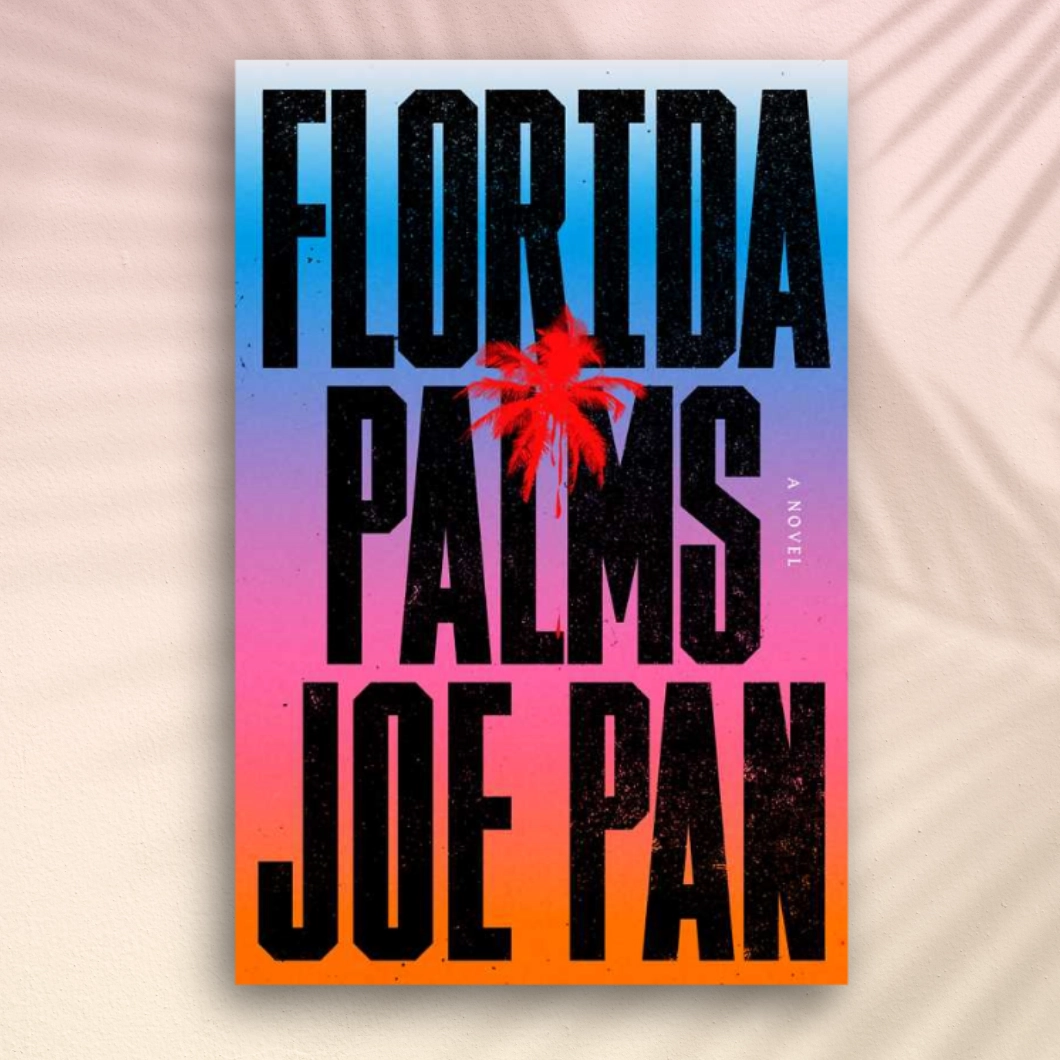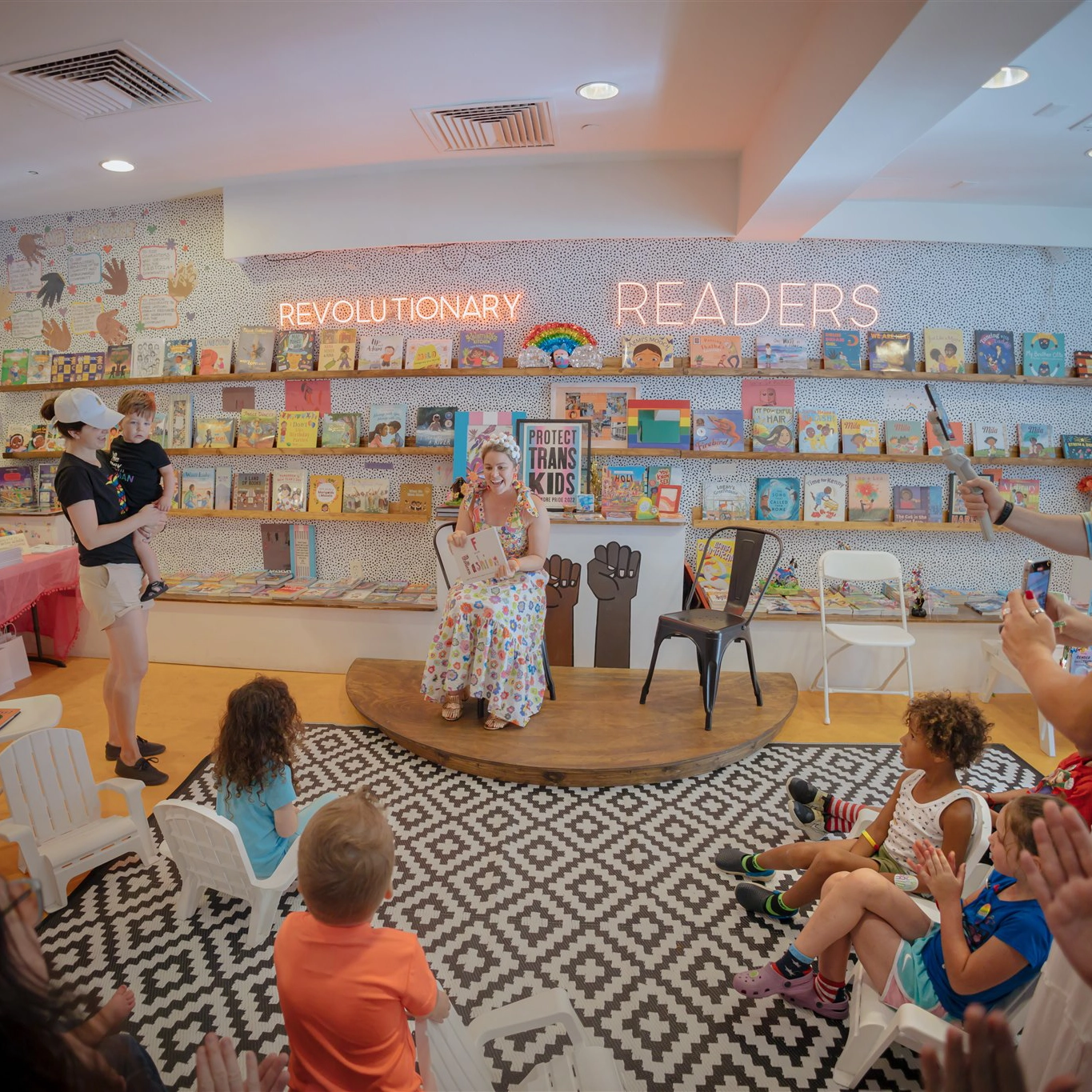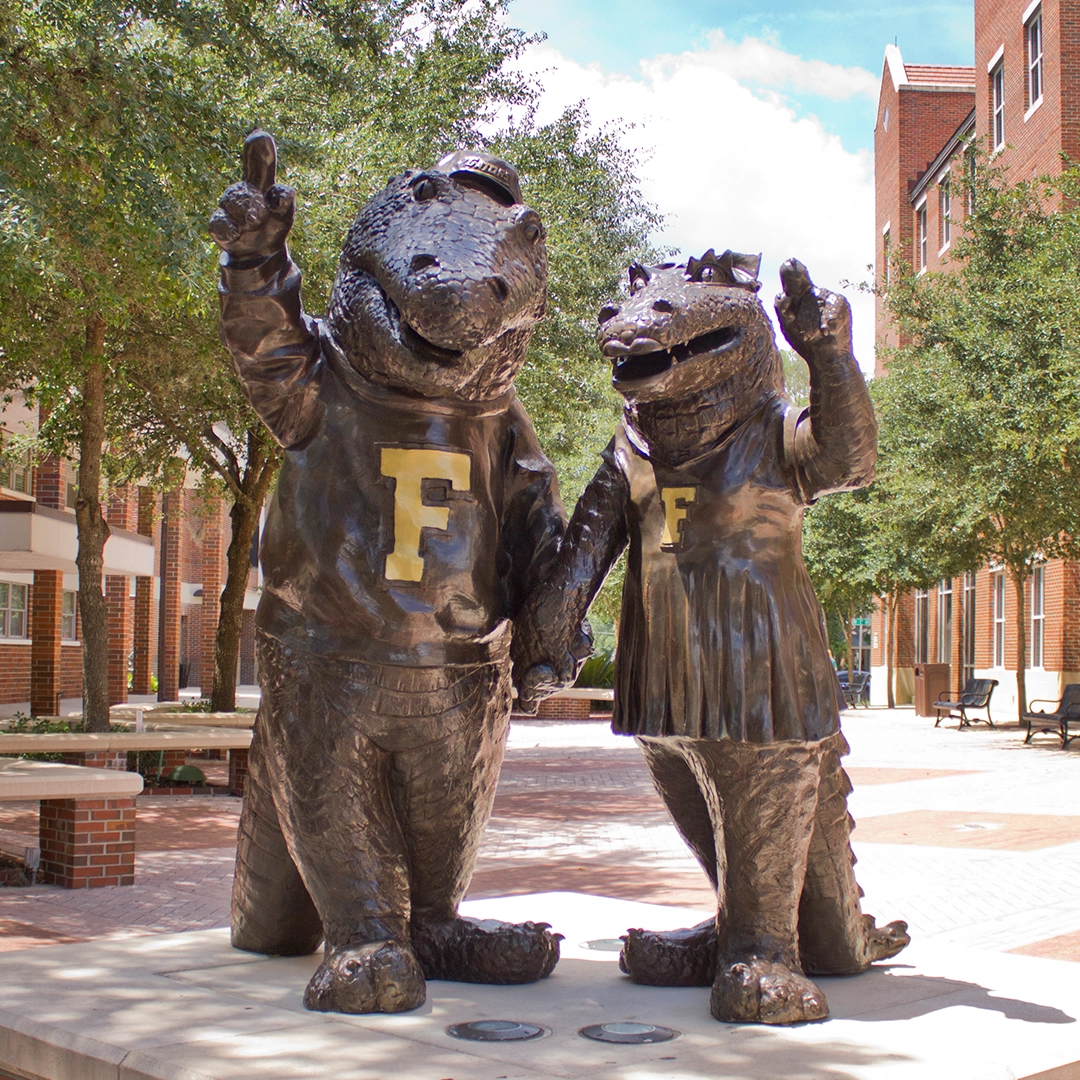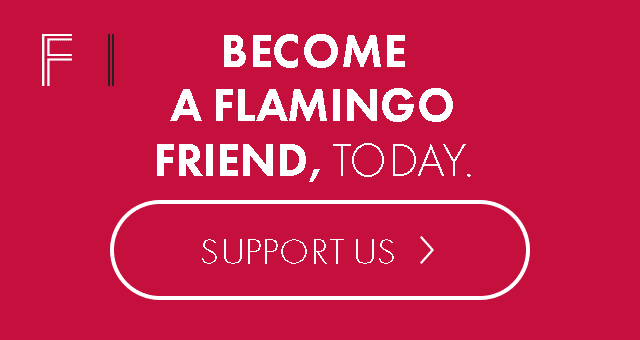by Steve Dollar | September 13, 2024
Navigating Florida’s Uncanny Realities: An Interview with Laura van den Berg
Exploring family, memory and the surreal landscape of the Sunshine State in Floridian Laura van den Berg's new sci-fi novel.
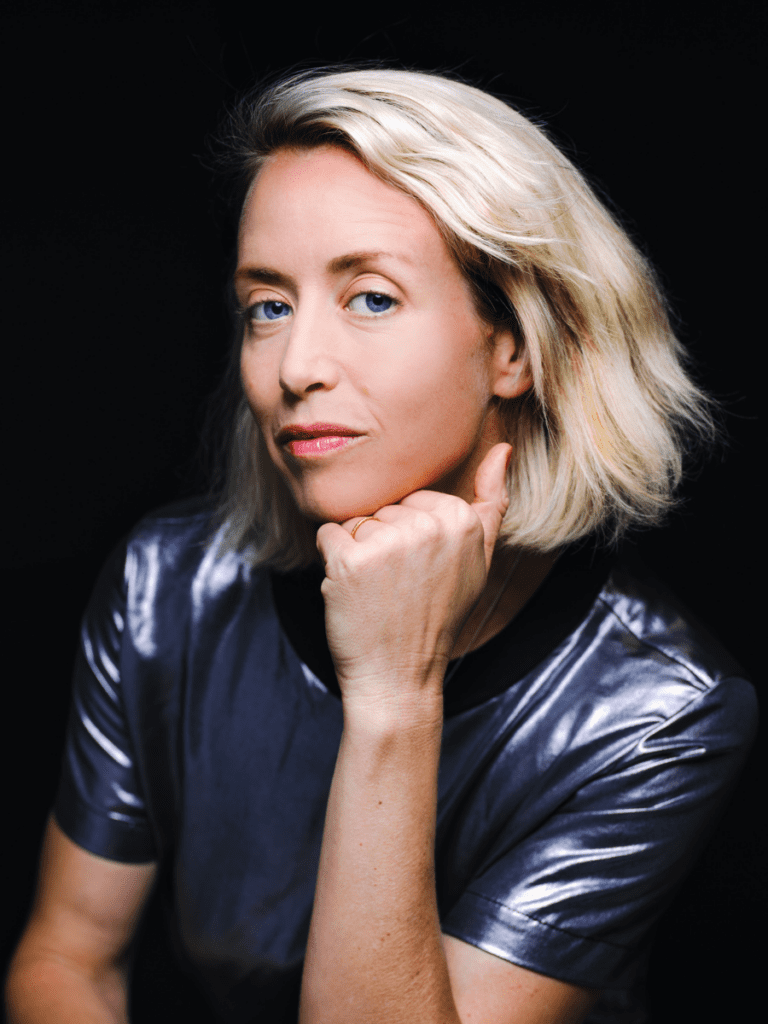
In her new novel “State of Paradise,” author Laura van den Berg suggests that in her native Florida, “the narrative cradle is cracking apart.” As she explains, “It does feel like ground zero for so many of the dynamics that we see playing out nationally, and that’s sort of like cracking open. We are on such unprecedented grounds. We don’t know what’s going to happen next.”
The book, which began as a pandemic diary, reflects the nervous consciousness and surreal flutter of its time and place—our time and place—as Van den Berg and her husband, fellow writer and educator Paul Yoon, relocated from Austin, Texas, to a Central Florida rental property they owned in 2020, during the early stages of the COVID-19 outbreak. Her mother soon moved in, her younger sister lived close by – a familial pandemic bubble. “I thought, ‘Oh, this wild thing is happening and we’ll be here for a few weeks, and then resume regular life,” said Van den Berg, who left Florida in her twenties. Instead, the novelist came to grips with her father’s 2019 death, a painful adolescence when her mental health was up for grabs, and an ever-more uncanny atmosphere of right-wing politics and conspiracy theories, climate disasters, and high-tech hoodoo. “There was a lot of intensity that came with being back,” she continued. “As a way of processing that I started writing these daily meditations on memory, landscape, and different parts of my experience of being there at this moment in time. I did not think it would ever be a book. I was really doing it to keep the train on the tracks.”
Van den Berg’s fictional alter ego, a ghostwriter of thriller novels for a secluded author, likewise struggles to make sense of family traumas, invasive dreams, and the ambient Floridian weirdness made extra-vivid amid the pandemic—and the influence of a new virtual reality device that opens up a metaverse full of deeper mysteries.
Flamingo recently spoke with Van den Berg, 41, who now teaches writing at Harvard University, about her complex relationship with her home state and how it inspires her fiction.
I was struck by something at the start of the book, where you write: “I’m attempting to document the world as accurately as I can, even if that means I have to make things up.” That sounds like an apt description for your whole project.
LAURA VAN DEN BERG: Why I write fiction is that there’s certain things that I feel called to express. But to just simply state the facts of what happened, I wouldn’t achieve the kind of resonance that I’m seeking. There’s something about the speculative premise. It’s like the Emily Dickinson idea of telling it slant, right? And the speculative premise allows you to come at these things sort of sideways, and to access them with the fullness that I’m not able to access through realism or through memoir.
The book’s evocation of ghosts that permeate Florida lore is an appropriately eerie touch: the field of the dead underneath a stretch of I-4, the haunted Eastern Airlines flights. But it’s not such a far reach, it’s already there.
LV: I did not acquire a headset that allowed me to travel to different realities in my actual life, but the taxonomy of Florida details is mostly true. In some cases, they’re amplified a little bit but not that much.
I mean, the militias aren’t taking over yet.
LV: Yeah, right. We’re just peering into a possible future. There’s this idea that novelists are supposed to research things that they themselves haven’t experienced, or eras that they didn’t live in, things that they don’t (know) that much about intrinsically, and I found it so fascinating to do deep research on a place that I know really intimately and to approach place with a richness of curiosity that I absolutely did not have as a young person. I was like a ‘90s mall rat. I had no interest in nature whatsoever. That kind of curiosity of like, “Oh, right, I remember, you’re supposed to hold your breath when you cross this part of I-4,” all the urban legends from youth. Where did that come from? What’s going on there? I’d look into it and find these sorts of extraordinary stories.
It’s also odd and surprising the encounters your husband had on his daily runs, which make it into the fictional narrative.
LV: Bless his heart, he is from New England. We’ve been together for a long time. He’s been to Florida many times to visit, but …. he had never lived in the South, let alone in Florida. It was a real culture shock for him. He’s still recovering. We were in Sanford specifically. He would go for these long runs around Lake Monroe. On his first one, he was startled and told me that he had observed a man with a dog walk up to a parked car and take a very long knife out a trench coat (and puncture) the tire with a knife. It turned out there was this whole drama between these local characters, some revenge was being enacted. And the guy, who my husband later got to know, looks up at him and saw him watching. He was tracking his own sort of reality with its own cast of characters. He was extraordinarily popular. People would come up to me in the grocery and be like, “Are you the wife of the Running Man?” Because he was running every day. I think he became one of those touchstones for some people.
How did you arrive at the story’s speculative elements? Living in Florida already can feel like an alternate reality, so it’s fun to lean into the actual idea.
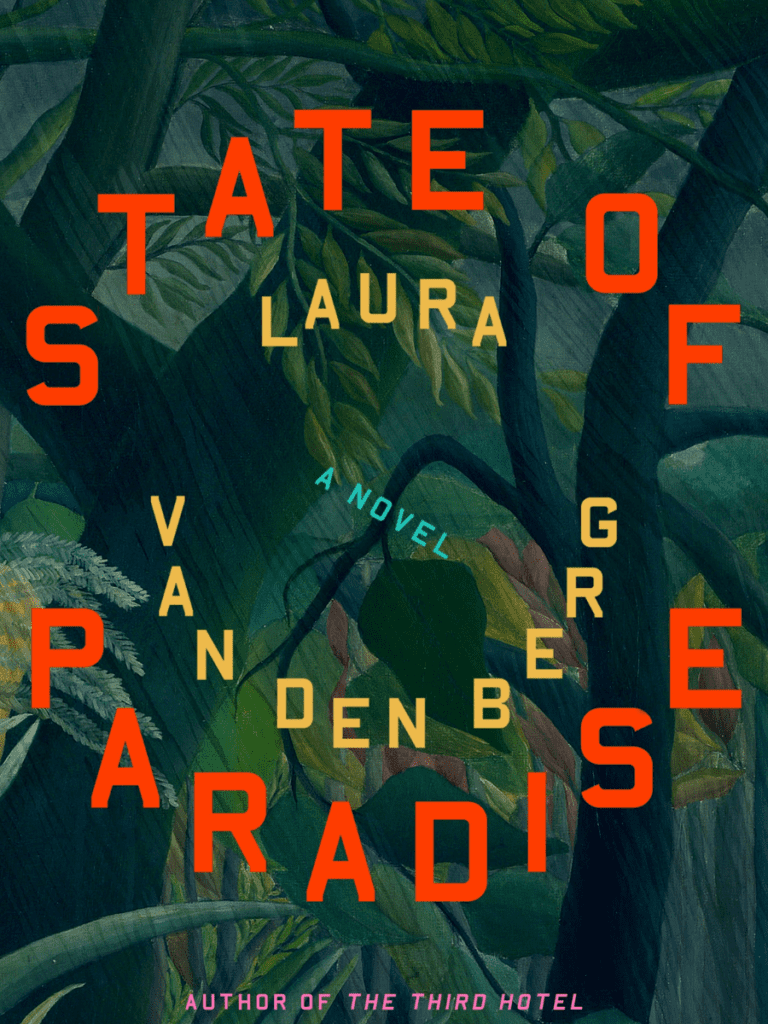
LV: I became really interested in the idea of portals. The pandemic felt like such a portal, where one moment we’re going about our usual business, and then the next moment the world shapeshifts on us. We’re sanitizing our mail, doing things we had not expected to be doing even a week or two ago. That quality of experience was something that I wanted to write into. If you’re having an exigent mental health crisis, that’s a portal, right? All of a sudden, you’re in a different reality than the people around you. I was playing with these ideas …. and that sort of merged with a tech piece where one evening my mom and my sister and my husband and I were all sitting around, and I realized we were all on our phones, which is a common family scene. But it occurred to me that we’re having totally different experiences—absorbed in our own micro-reality. That was when I got the idea that technology would play a role in how the characters experienced and accessed different strands of reality and that a technological device would be a literal portal and then things built from there.
Beyond the obvious disruption of the pandemic, what aspects of Florida hit you differently?
LV: I felt this deep curiosity that I had mentioned. I did not necessarily feel deeply about where I lived as a young person, I just wanted to leave. I have a really big family, there are always lots of people to see. So if we came, it was go-go-go and you didn’t have time to have your curiosity. But I felt a deep curiosity about the physicality of the place: about the flora, the fauna, the names of bridges, the lore and the legends. I felt really compelled to explore physically, in terms of just spending a lot of time in the natural world, which is really weird and dangerous and beautiful in its own very specific way, but also learning about this place. It was like being in a long relationship, and arriving in a moment where you’re like, “Oh, I thought I knew you completely. But I actually am discovering that I only know you partially, but I want to know you more completely.”
Why I write fiction is that there’s certain things that I feel called to express.
–Laura van den Berg
In your rediscovery, what places were most inspiring?
LV: I love the springs in Central Florida. That’s my idea of a great day, just going to the springs and getting in a tube and floating. So Kelly Springs. We have some beautiful, beautiful spots. I love that we were very close to the Black Bear Wilderness Area, which is really gorgeous. It’s also so cool. It’s a six or eight mile loop and if you do the whole thing you go through so many different kinds of Floridian landscapes. You’ll go through mangroves, fields with wildflowers, you can see all of these different topographies condensed into one space. I love taking people there. You’re going through this very narrow path through a canal. You see all of these huge alligators just hanging out on the banks. There is something a little prehistoric. It was really primordial in that way. People (ask,) is there something about Florida that makes sense for speculative fiction? The landscape. It’s so wild, and beautiful and strange and unsettling. I felt very connected to those sort of aesthetics.
Your time back home also has sparked another Florida project, set in the world of small-town amateur boxing. Is there good boxing in Central Florida?
LV: It has a pretty active boxing community. I was at Elite Boxing and Fitness in Oviedo. I don’t think I ever would have had the courage or the self-belief to even attempt competing if it wasn’t for Elite. It’s a family owned gym. The coach did the thing that a great coach does, which is he saw a version of me that was better, that I couldn’t see myself. He was like, “But I see it and so I’m gonna push you toward that other better version. I know that that person is out there.” So I really owe him for life.

